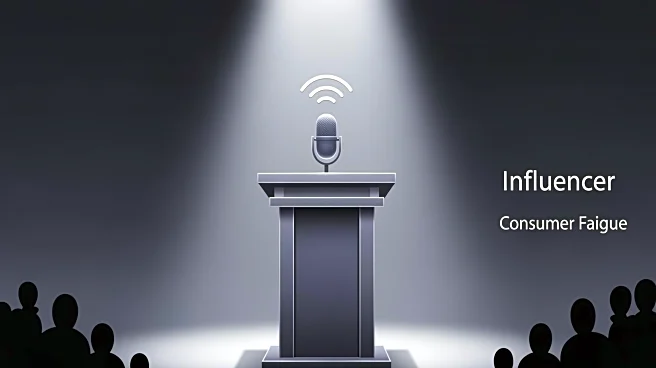What's Happening?
Influencer marketing is projected to reach $32.6 billion by the end of 2025, yet it faces challenges as consumers express fatigue over the high volume of sponsored content. A survey by Business of Fashion
and McKinsey found that 68% of shoppers are frustrated by the prevalence of ads on social media, and 65% follow fewer fashion influencers than before. Despite this, trust in influencers among Gen Z and millennials has increased, highlighting a paradox where audiences are wary of inauthentic promotion but still value relatable voices. Brands are responding by partnering with nano- and micro-influencers, who offer higher engagement and authenticity, and by using product seeding to build genuine relationships.
Why It's Important?
The influencer marketing industry's growth underscores its significance in modern advertising, yet the challenges it faces highlight the need for authenticity and strategic partnerships. As consumers become more discerning, brands must adapt by focusing on genuine connections and leveraging smaller influencers who resonate with niche audiences. This shift has implications for marketing strategies, emphasizing the importance of trust and relatability in an era of digital ad fatigue. The industry's ability to navigate these challenges will determine its future success and influence on consumer behavior.









